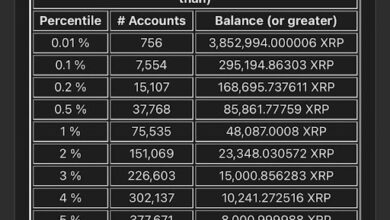
On September 30, 2024, Taiwan’s Financial Supervisory Commission (FSC) made a groundbreaking announcement that has the potential to reshape the landscape of digital assets in the region. The FSC has officially approved the inclusion of foreign crypto exchange-traded funds (ETFs) for professional investors, opening new avenues for institutional investment in digital assets.
Foreign Digital Assets ETFs Approved For Professional Investors
This landmark decision permits institutional investors in Taiwan to invest in foreign digital asset ETFs through a process known as re-entrustment. The FSC’s announcement clarifies that professional investors encompass a range of entities, including professional institutional investors, high net worth investment legal persons, high-asset clients, and legal persons or funds belonging to professional investors. Additionally, natural persons classified as professional investors are also included.
Re-entrustment involves delegating investment management to a secondary party, who subsequently transfers that responsibility to a third party. This mechanism is particularly beneficial for institutions looking to invest in specialized assets, such as foreign crypto ETFs, by utilizing trusted intermediaries. This ensures that investments are managed with the requisite oversight and expertise, enabling seamless access to global markets.
For Taiwanese institutions, this means they can delegate investment management duties to local financial institutions, which can then assign foreign asset managers to handle investments in crypto ETFs. This streamlined process enhances access to global crypto markets while adhering to local regulatory requirements and risk management protocols.
The FSC’s decision follows extensive consultations with the Securities Business Association (SBA) to evaluate the risks associated with crypto ETF investments. As a result, institutional clients now have the green light to engage with foreign crypto ETFs, provided they meet certain conditions.
Conditions for Investment
Before securities firms or investors can invest in foreign crypto ETFs, they must first develop a “suitability system” that has received approval from their board of directors. Additionally, the expertise level of the client regarding virtual assets must be carefully assessed before any investments are made. Clients interested in investing in crypto ETFs through re-entrustment are required to sign a risk warning document before making their initial purchase.
Securities dealers are also mandated to provide comprehensive information related to virtual asset ETFs before facilitating any client purchases. The FSC emphasized its commitment to closely monitoring securities firms involved in the ETF investment business, ensuring regulatory compliance, safeguarding investor rights, and fostering market competitiveness.
Contrasting Attitudes Toward Crypto in Asia
While Taiwan’s decision reflects a growing acceptance of digital assets, other regions in Asia exhibit a more cautious stance toward this emerging asset class due to its inherent volatility. For instance, the Korea Institute of Finance (KIF) has expressed concerns about the potential negative impact of spot ETFs on the South Korean economy.
Similarly, Japan’s financial regulator has underscored the necessity of “cautious consideration” when it comes to approving crypto ETFs. Despite this, a recent survey indicated a growing receptiveness among Japanese institutional investors toward digital assets.
In stark contrast, the Hong Kong Securities and Futures Commission (SFC) made headlines by approving the first spot Bitcoin (BTC) ETF in April 2024. This move signifies a more progressive approach to digital assets in the region. As of the latest updates, Bitcoin is trading at $63,984, reflecting a 2.7% decline over the past 24 hours.
The evolving regulatory landscape across Asia highlights the diverse attitudes toward digital assets, with some regions embracing innovation while others remain cautious. Taiwan’s recent approval of foreign crypto ETFs for professional investors marks a significant step forward in the global acceptance of digital assets.







